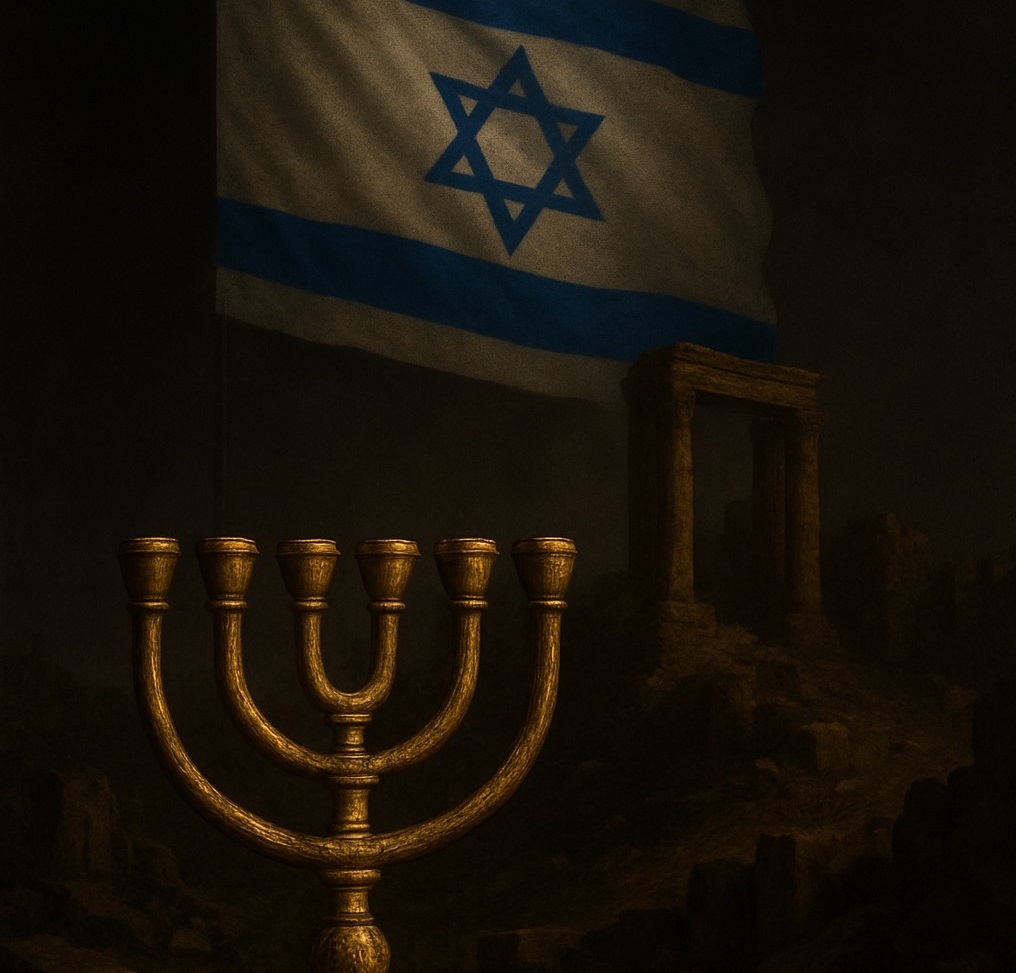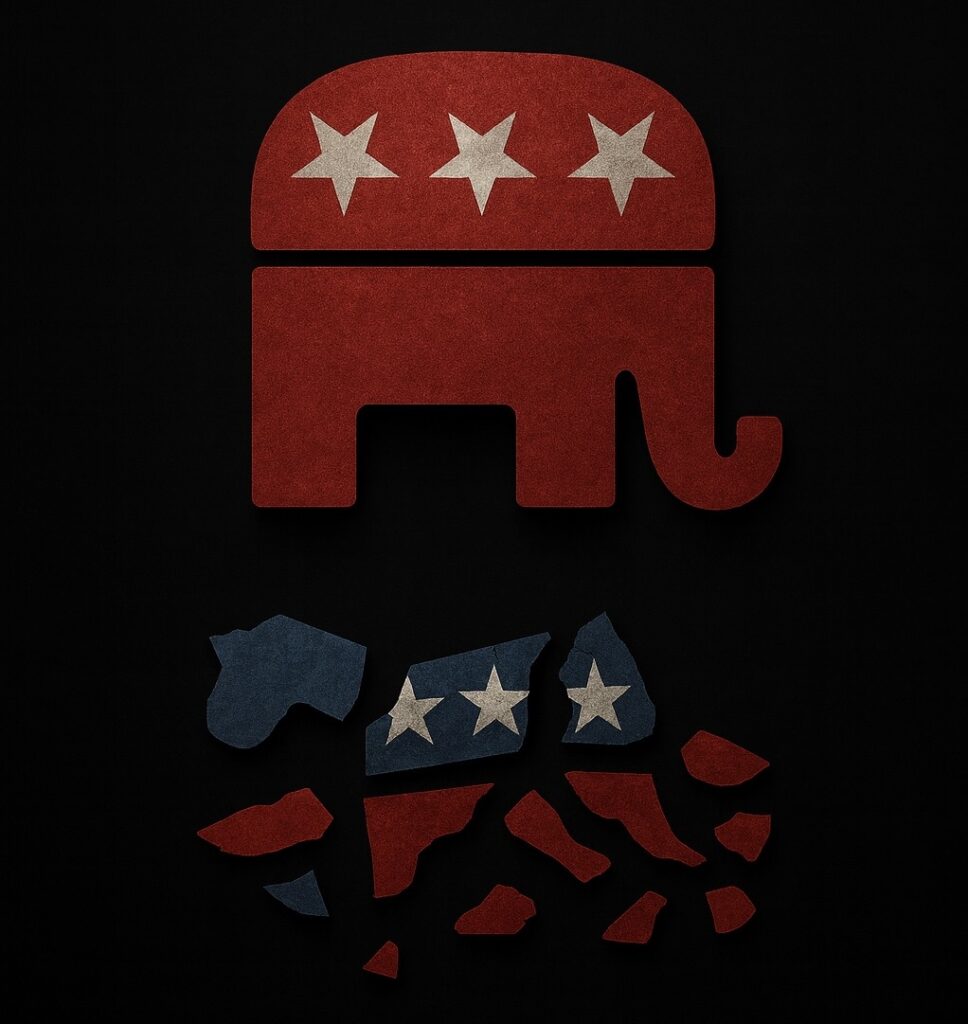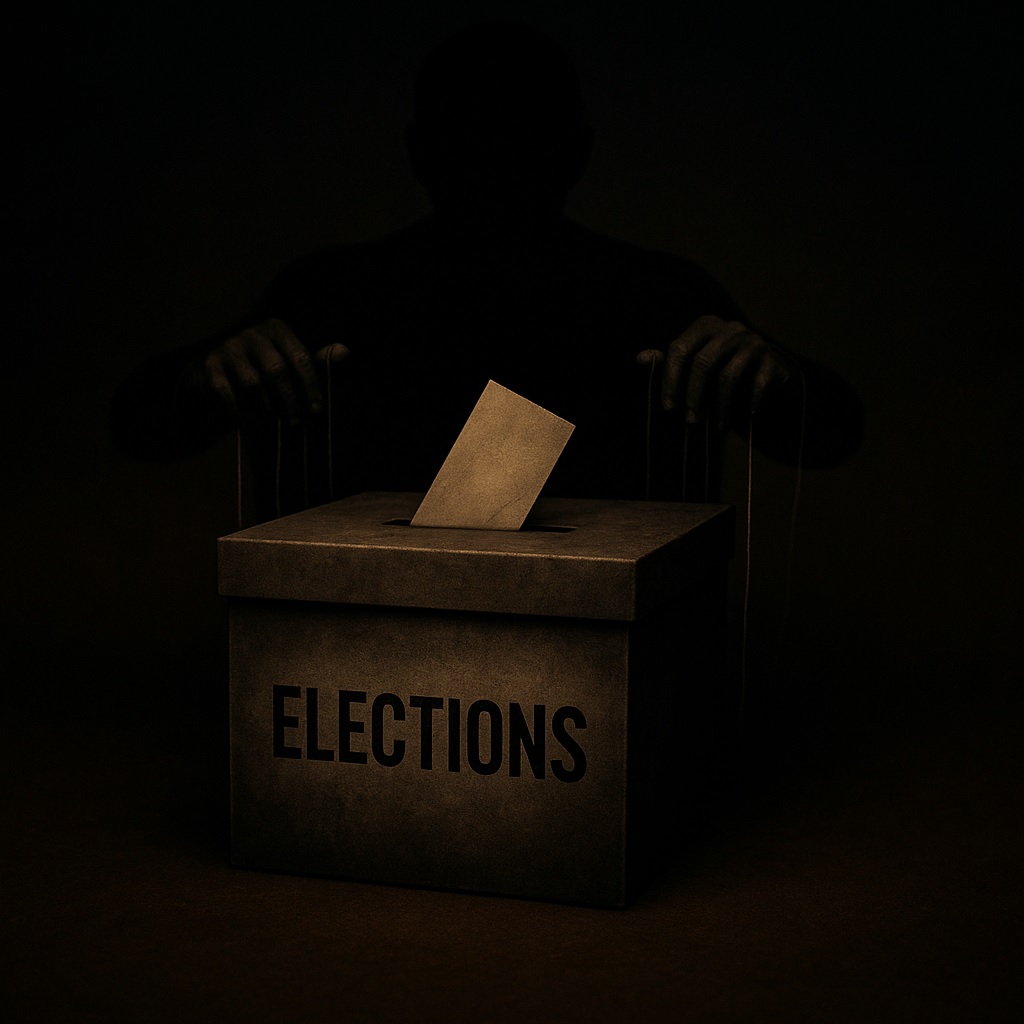Introduction: A World Divided
The world is bitterly divided over Hamas and Israel. Millions see Israel as a sanctuary for a persecuted people, while millions more see it as an occupying force committing atrocities in Gaza and beyond. Every protest, every airstrike, every social media post seems to deepen the divide. And yet, to even ask questions about Israel’s origins or its influence over global politics is to risk being labeled a Nazi, a racist, or a conspiracy theorist.
But truth cannot survive behind walls of silence. If God once called this people His chosen nation, we must now ask whether His favor has been lost — and if so, whether another spirit has stepped in to guide their path. Today the world stands at the edge of nuclear destruction, and our fear of speaking honestly is pushing us closer to that edge with every passing day.
Abraham, Two Sons, and an Ancient Rivalry
The story begins with Abraham, patriarch of three major religions. Abraham had two wives: Sarah, his first wife, who bore him Isaac, and Hagar, Sarah’s Egyptian servant, who bore him Ishmael. When conflict erupted, Sarah demanded that Abraham cast Hagar and Ishmael into the wilderness (Genesis 21:10). God promised Abraham that both sons would father great nations, but this act of division set into motion an eternal rivalry.
Ishmael’s descendants became the Arab peoples, while Isaac’s descendants became the Israelites through Isaac’s son Jacob, later renamed Israel. From the very beginning, these two bloodlines were on a collision course, fighting over land, faith, and destiny. The conflict between Arabs and Jews today — from Gaza to Jerusalem — traces back nearly 4,000 years to this ancient divide.
Generations later, famine struck the region. Jacob’s descendants migrated to Egypt through Joseph’s influence. The Bible records a surprising truth often overlooked: the Hebrews sold their land, possessions, and even themselves into servitude during the famine (Genesis 47:19-21). Over time, they multiplied and rose in prominence, alarming Egypt’s rulers. Fearing their power, Pharaoh enslaved them outright. This established a cycle repeated throughout history: temporary submission for survival, followed by eventual rebellion and rise.
The Exodus from Egypt is remembered as liberation, but what followed was a war of annihilation. Under Joshua, the Israelites entered the Promised Land not to coexist, but to eradicate rival populations. The book of Deuteronomy commands: “You must destroy them totally. Make no treaty with them, and show them no mercy” (Deuteronomy 7:2). Cities were burned, and men, women, and children slaughtered. From this moment forward, Israel saw itself as separate and superior — a chosen people set apart from all others. To neighboring nations, they were a theocratic conqueror claiming divine right to destroy and replace anyone in their path. This exclusivity ensured survival but also sowed seeds of resentment that echo to this day.
Exile, Diaspora, and the Survival Strategy
Over time, corruption and internal conflict weakened Israel. In 607 BCE, the Babylonian King Nebuchadnezzar conquered Jerusalem, destroyed the First Temple, and exiled thousands of elites to Babylon. In exile, Jewish leaders adapted, mastering administration, trade, and finance. Synagogues replaced centralized worship, creating a portable identity based on law and tradition rather than geography — the key to surviving without a homeland.
Centuries later, Judea came under Roman rule. In 66 CE, Jewish rebels revolted. By 70 CE, Roman General Titus crushed the uprising, destroying Jerusalem and the Second Temple, slaughtering over a million. In 135 CE, Emperor Hadrian erased Judea from the map, renaming it Syria Palaestina and scattering Jews throughout the empire. This marked the true beginning of the Diaspora — a people dispersed across the world.
As Jews spread through Europe, they faced hostility and persecution. Their strict laws preserved identity but also reinforced their separateness. With Christianity’s rise, tensions worsened. Jews were blamed for Jesus’ crucifixion and banned from owning land or joining trade guilds. The Catholic Church forbade Christians from charging interest on loans, yet kings and nobles still needed credit to fund wars. Jews, not bound by Christian law, became the only group legally allowed to lend money at interest, dominating finance and currency exchange.
This created a volatile dynamic. Rulers relied on Jewish financiers to fund wars, while common people resented the resulting taxes and debts. When anger boiled over, rulers expelled Jews and seized their wealth. England expelled its Jews in 1290, France in 1306, Spain in 1492, and Portugal in 1497. Each expulsion concentrated wealth into fewer, more powerful families, forging elite international networks. By the 18th and 19th centuries, families like the Rothschilds, Warburgs, and Schiffs became power brokers of Europe, financing both sides of wars and shaping nations. Nathan Rothschild’s manipulation of the British markets after Waterloo demonstrated that money had become more powerful than monarchs. As the family boasted: “Permit me to issue and control the money of a nation, and I care not who makes its laws.”
Zionism, Communism, the Holocaust, and the Creation of Israel
Centuries of persecution gave rise to Zionism, a movement to create a permanent Jewish homeland. Led by Theodor Herzl, Zionists argued that Jews would never be safe without sovereignty.
At the same time, another revolution was unfolding — one that would destroy entire nations. Communism, according to Winston Churchill’s 1920 warning, was led by an “overwhelmingly Jewish” leadership. Aside from Lenin, nearly every key Bolshevik revolutionary — Trotsky (Lev Bronstein), Zinoviev, Kamenev, Radek — came from Jewish backgrounds. Jewish bankers like Jacob Schiff financed the Bolsheviks with millions.
Within a few years, Russia’s monarchy, church, and centuries of history were erased, replaced by a centralized regime built on terror and ideological control. Mao Zedong’s rise in China soon followed, plunging another ancient civilization into chaos. Two of the world’s richest and oldest cultures were deliberately dismantled in one generation — clearing the way for global elites to manipulate both nations.
During World War I, the 1917 Balfour Declaration signaled Britain’s support for a Jewish homeland, but darker forces were already shaping events. The Treaty of Versailles, influenced by international financiers, economically destroyed Germany, fueling the desperation that brought Hitler to power. Some historians argue certain Zionist leaders were willing to allow European Jewish suffering during WWII to build overwhelming global sympathy.
The Holocaust, while an unspeakable tragedy, became the ultimate political weapon — silencing criticism and justifying Israel’s birth. In 1947, Israel was established, displacing hundreds of thousands of Palestinians into refugee camps and Gaza. From its first day, it was locked in perpetual conflict.
While Israel’s military and financial power is formidable, its cultural influence may be even greater. Hollywood, founded and dominated by Jewish studio heads like Louis B. Mayer, Samuel Goldwyn, and the Warner brothers, became the storytelling engine of the world. Through movies and media, narratives are shaped and public opinion molded. This influence often protects Israel from criticism while demonizing its opponents. Controlling the story means controlling the perception — and perception shapes politics.
Modern Israel and the Global Crisis
Today, Israel wields unmatched influence over the United States. Billions in U.S. taxpayer dollars flow annually to support Israel’s military and expansion. American foreign policy often aligns more closely with Israeli interests than with those of the American people. Political groups like AIPAC ensure questioning this relationship is political suicide. In media and politics, criticism of Israel is silenced by accusations of antisemitism.
The result is a superpower acting as a proxy for another nation, dragged into endless Middle East wars while its own democracy weakens. This influence extends to censorship, where certain topics — including Israel’s role in geopolitics — are taboo.
The Hamas–Israel conflict is not an isolated incident. It is the culmination of thousands of years of rivalry, conquest, and exclusivity. Ishmael’s descendants — cast into the wilderness — fight to reclaim dignity and land. Isaac’s descendants, reborn as a modern state, defend what they believe was divinely promised. Every bomb, every protest, every diplomatic move echoes ancient history. But now, nuclear weapons hang over the conflict, and the world itself could burn if these grudges are not resolved.
From Abraham’s divided household to Babylonian exile, from Rome’s destruction of Jerusalem to medieval ghettos, from Rothschild banking dynasties to communism’s devastation of Russia and China, the story of the Jewish people is one of extraordinary transformation. They have risen from slaves to survivors to global power brokers.
But each cycle of rise and fall has left deep scars — on themselves, on the nations they’ve influenced, and on the world. By forbidding honest debate and silencing criticism, we’ve allowed ancient conflicts to metastasize into a modern global crisis. If God once chose this people, we must now ask: Whose will are they serving today — and what future are they building for humanity? Because silence is no longer neutral. It is the weapon that may soon bring the world to the brink of destruction.




